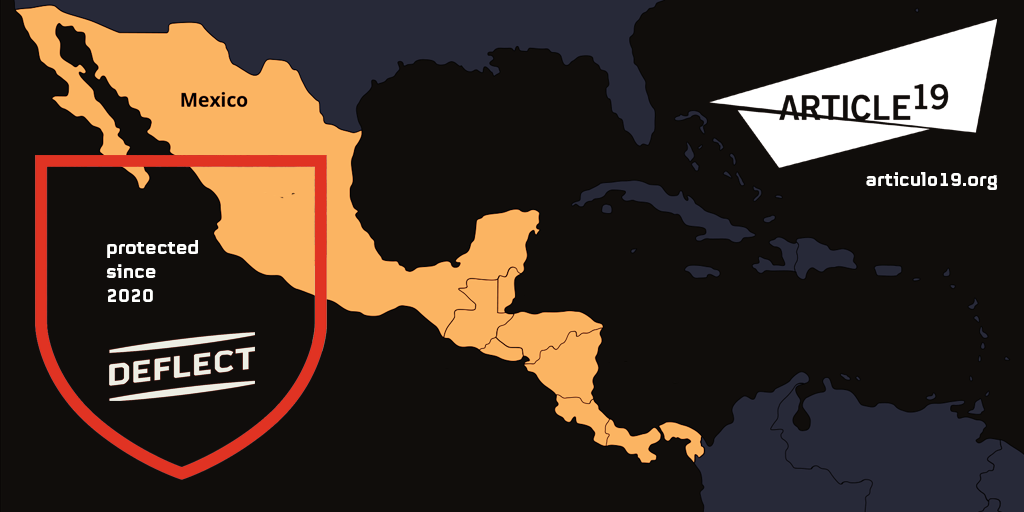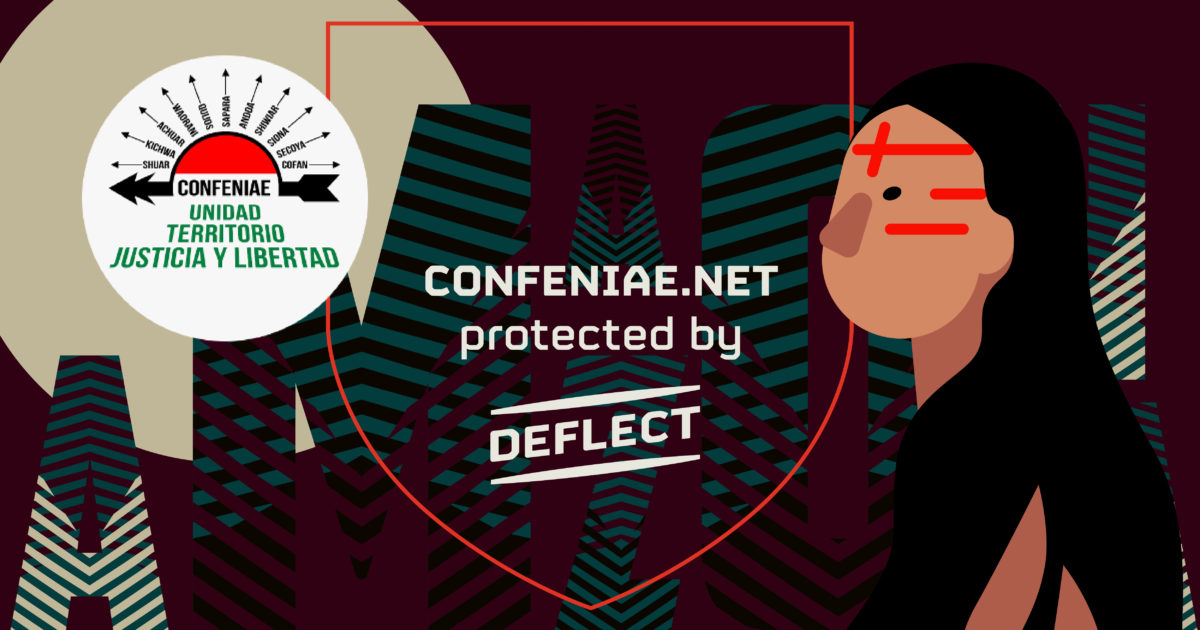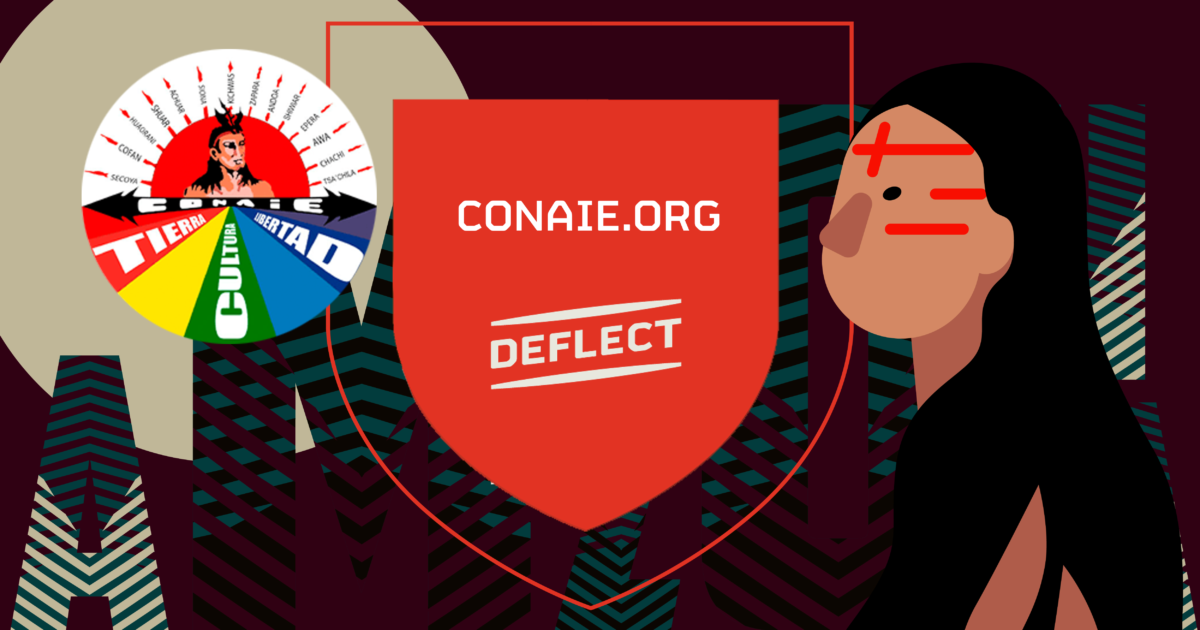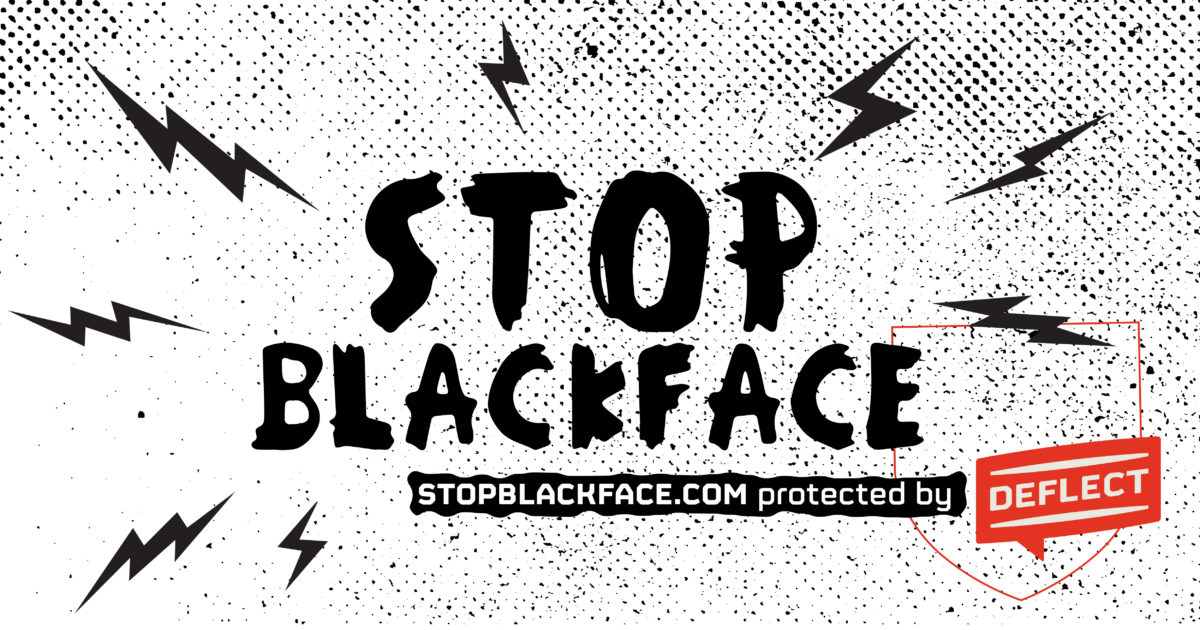We love the transparency and clarity in the privacy policy and the personal support from Deflect.
Articulo 19 Team


We love the transparency and clarity in the privacy policy and the personal support from Deflect.
Articulo 19 Team

| Domain: | Human rights/Environment |
|---|---|
| Based in: | Ecuador |
| URL: | https://confeniae.net/ |
| Protected: | Since 2019 |
| About: | CONFENIAE is defending the rights of more than 1,500 Amazonian communities, including Kichwa, Shuar, Achuar, Waorani, Sapara, Andwa, Shiwiar, Cofan, Siona, Siekopai, and Kijus. The website represents Indigenous people protecting the Amazon from oil drilling and agribusiness to save their ancestral forest homelands. |

| Domain: | Human rights/Environment |
|---|---|
| Based in: | Ecuador |
| URL: | http://conaie.org |
| Protected: | Since 2019 |
| About: | Since 1980, CONACNIE has been promoting the consolidation and rights of Indigenous people in Ecuador. Their main objectives include fighting for Indigenous land and territories, supporting their own education (intercultural/bilingual), fighting against the oppression of the civil and ecclesial authorities, and protecting the cultural identities of Indigenous peoples. |

| Domain: | Environment |
|---|---|
| Based in: | Canada |
| URL: | http://extinctionrebellion.ca |
| Protected: | Since 2019 |
| About: | Extinction Rebellion is a global movement that uses non-violent civil disobedience in an attempt to halt mass extinctions of humans and other species and minimize the risk of social collapse. |

| Domain: | Civil society |
|---|---|
| Based in: | Canada |
| URL: | https://the-tower.ca/ |
| Protected: | Since 2018 |
| About: | The Tower is a social space for radicals and anarchists in Hamilton to share their events, projects, and libraries, and to socialize and organize. We stepped in when The Tower was under attack, and since then, we have kept their website, as well as their database of political books, on-line. |

| Domain: | Human rights |
|---|---|
| Based in: | Rakhine State, Myanmar |
| URL: | https://www.rohingya.org |
| Protected: | Since 2012 |
| About: | ARNO’s website covers rights abuses against the Rohingya people and other minority groups in Myanmar. These violations include arbitrary arrests, torture, rape, and deaths in detention. Over several decades, the Rohingya people have been ruthlessly persecuted and left stateless. In spite of Aung San Suu Kyi’s attempts to dismiss the Rohingya’s rights and ignore their pleas for justice, ARNO continues to bring stories of human rights violations to a global audience. |

| Domain: | Human rights |
|---|---|
| Based in: | Russia |
| URL: | https://mmdc.ru |
| Protected: | Since 2019 |
| About: | Deflect is protecting The Mass Media Defence Centre, an NGO working in the fields of media rights protection and promotion of freedom of expression standards in Russia. |

| Domain: | Minority groups |
|---|---|
| Based in: | Kyrgyzstan |
| URL: | https://indigo.kg/ |
| Protected: | Since 2019 |
| About: | Launched in 2009 by a group of anonymous activists, the LGBTIAQ community Kyrgyz Indigo promotes equal rights for LGBTQ+ individuals, disabled persons, ethnic minorities, HIV/AIDS positive individuals, and sex workers in Kyrgyzstan. |

| Domain: | Minority groups |
|---|---|
| Based in: | Russia |
| URL: | https://parniplus.com https://gaytest.info/ https://lgbt-hiv.net/ https://prep.love/ |
| Protected: | Since 2019 |
| About: | LGBTQ+ people in Russia experience stigma and discrimination throughout their lives and have difficulties finding health care. These websites have been developed to provide an inclusive, diverse, and respectful environment for all lesbian, gay, bisexual, and transgender people to help address their health care issues. |

| Domain: | Minority groups |
|---|---|
| Based in: | Netherlands |
| URL: | https://stopblackface.com/ |
| Protected: | Since 2019 |
| About: | Stop Blackface is an online platform which aims to connect different activists and campaigns who contest the practice of blackface as part of the global struggle against racism and white supremacy. |